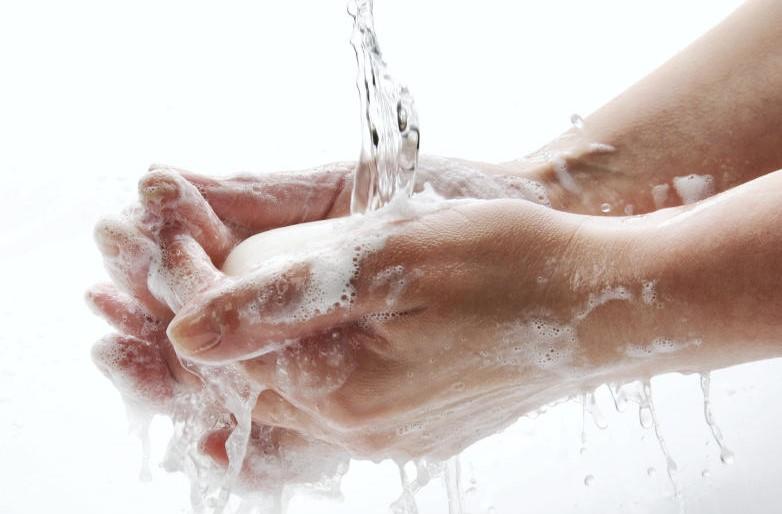The HSE has the most up to date and detailed advice available on how to protect yourself and others from the coronavirus on its website www.hse.ie.
To protect yourself and others from coronavirus (COVID-19) it’s important to think about how the virus is spread.
How is coronavirus spread?
Coronavirus is spread in sneeze or cough droplets.
To infect you, it has to get from an infected person's nose or mouth into your eyes, nose or mouth. This can be direct or indirect (on hands, objects, surfaces). Keep this in mind. It will help you remember all the things you need to do to protect yourself and others from the virus.
Social distancing
Social distancing is important to help slow the spread of coronavirus. It does this by minimising contact between potentially infected individuals and healthy individuals.
Social distancing is keeping a space of 2m (6.5 feet) between you and other people. Do not shake hands or make close contact if possible.
Help slow the spread of coronavirus
To help slow the spread of coronavirus:
anyone who has symptoms should self-isolate for 14 dayseveryone should limit unnecessary social contact as much as possibleat-risk groups should avoid close contact with people outside the homeHow to protect yourself and others from coronavirus
Follow this advice as strictly as possible and encourage others to follow this advice too.
Do
Wash your hands properly and often.Cover your mouth and nose with a tissue or your sleeve when you cough and sneeze.Put used tissues into a bin and wash your hands.Clean and disinfect frequently touched objects and surfaces.Avoid close contact with people who are not well.Follow the travel advice from the Department of Foreign Affairs.Stay at home if you are sick to help stop the spread of whatever infection you may have.Don’t
Do not touch your eyes, nose or mouth if your hands are not clean.Do not share objects that touch your mouth – for example, bottles, cups.You should wash your hands:
After coughing or sneezing.Before and after eating.Before and after preparing food.If you were in contact with someone who has a fever or respiratory symptoms (cough, shortness of breath, difficulty breathing).After being on public transport or in a crowd (especially an indoor crowd).If you have handled animals or animal waste.Before having a cigarette or vaping.If your hands are dirty.After toilet use.
The HSE has the most up to date and detailed advice available on how to protect yourself and others from the coronavirus on its website www.hse.ie.
To protect yourself and others from coronavirus (COVID-19) it’s important to think about how the virus is spread.
How is coronavirus spread?
Coronavirus is spread in sneeze or cough droplets.
To infect you, it has to get from an infected person's nose or mouth into your eyes, nose or mouth. This can be direct or indirect (on hands, objects, surfaces). Keep this in mind. It will help you remember all the things you need to do to protect yourself and others from the virus.
Social distancing
Social distancing is important to help slow the spread of coronavirus. It does this by minimising contact between potentially infected individuals and healthy individuals.
Social distancing is keeping a space of 2m (6.5 feet) between you and other people. Do not shake hands or make close contact if possible.
Help slow the spread of coronavirus
To help slow the spread of coronavirus:
anyone who has symptoms should self-isolate for 14 dayseveryone should limit unnecessary social contact as much as possibleat-risk groups should avoid close contact with people outside the homeHow to protect yourself and others from coronavirus
Follow this advice as strictly as possible and encourage others to follow this advice too.
Do
Wash your hands properly and often.Cover your mouth and nose with a tissue or your sleeve when you cough and sneeze.Put used tissues into a bin and wash your hands.Clean and disinfect frequently touched objects and surfaces.Avoid close contact with people who are not well.Follow the travel advice from the Department of Foreign Affairs.Stay at home if you are sick to help stop the spread of whatever infection you may have.Don’t
Do not touch your eyes, nose or mouth if your hands are not clean.Do not share objects that touch your mouth – for example, bottles, cups.You should wash your hands:
After coughing or sneezing.Before and after eating.Before and after preparing food.If you were in contact with someone who has a fever or respiratory symptoms (cough, shortness of breath, difficulty breathing).After being on public transport or in a crowd (especially an indoor crowd).If you have handled animals or animal waste.Before having a cigarette or vaping.If your hands are dirty.After toilet use. 






 This is a subscriber-only article
This is a subscriber-only article










SHARING OPTIONS: